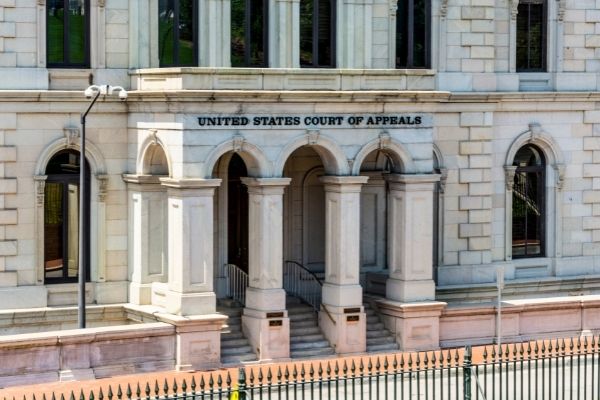Why Pick Federal Appeal Lawyers: Proven Methods for Effective Appeals
Why Pick Federal Appeal Lawyers: Proven Methods for Effective Appeals
Blog Article
Debunking the Refine of Federal Appeals: What You Required to Know
Navigating the detailed world of federal appeals can commonly feel like going across uncharted waters for those unfamiliar with the process. Comprehending the nuances of appellate court jurisdiction, the intricacies of filing a notice of appeal, providing a compelling short, and making a convincing dental disagreement are vital elements that can considerably influence the result of a case. By untangling the layers of intricacy bordering federal appeals, people can acquire a clearer insight into the mechanisms that govern this critical point of the legal system.
Comprehending Federal Appeals Refine
Looking into the intricate world of the government charms process unveils a structured and methodical journey with the judicial system. Federal appeals work as a vital device for assessing choices made by lower courts. Understanding this procedure is crucial for any person included in legal proceedings at the government level.
The process typically begins with an event dissatisfied with a lower court's judgment filing a notification of charm. This sets off a review by a greater court, where a panel of judges analyzes the lawful arguments presented by both events. Briefs detailing the legal thinking behind each celebration's placement are submitted, and oral disagreements may be heard to make clear complicated concerns.
The appellate court's choice is based upon a comprehensive assessment of the reduced court's procedures and the debates offered. The courts do not concentrate yet review facts on whether legal errors occurred that affected the lower court's decision. As soon as the appellate court gets to a choice, it can attest, turn around, remand, or change the reduced court's ruling, offering clearness and finality to the lawful conflict. Comprehending this process is important for navigating the complexities of government allures successfully.
Appellate Court Jurisdiction Discussed
Appellate court jurisdiction refers to the range of cases that a certain appellate court has the power to evaluate and determine upon. Unlike trial courts that listen to cases for the initial time, appellate courts are limited to examining choices made by reduced courts.
Appellate courts have territory over specific sorts of instances, usually those involving legal mistakes, procedural problems, or inquiries of law instead than valid disputes. The territory of appellate courts is normally detailed in laws and laws that regulate the court system. Understanding appellate court jurisdiction is vital for parties involved in the charms procedure as it determines whether a situation is qualified for testimonial and the extent to which the appellate court can intervene in the lower court's decision.
Declaring a Notice of Allure
The first action in beginning the government charms process involves submitting a Notification of Appeal with the ideal appellate court. This important paper officially informs the court and the various other parties included in the instance that the appealing event plans to look for a testimonial of the reduced court's choice. Filing a Notice of Charm is a rigorous step-by-step requirement that sets the appellate procedure moving.
When preparing the Notification of Charm, it is hawaii federal appeal lawyers essential to ensure conformity with the specific regulations and guidelines of the appropriate appellate court. federal appeal attorneys. The file needs to usually include information such as the instance name, the reduced court's name, the date of the judgment being appealed, and a succinct statement indicating the grounds for the charm

Instruction and Oral Argument
In the appellate process, offering written briefs and participating in dental debates play essential functions in supporting for the appealing event's placement prior to the appellate court. Briefs are comprehensive lawful papers that lay out the celebrations' debates, lawful authorities, and evaluation supporting their placements. These created submissions give the court with a thorough understanding of the facts of the case, the relevant law, and why the appealing party thinks the reduced court's decision need to be reversed.
Adhering to the submission and evaluation of the briefs, oral debates supply the celebrations a possibility to additional clarify their settings, address any questions the appellate courts may have, and highlight vital points from their created briefs. Dental debates are a chance for the lawyers to encourage the judges with spoken advocacy and reactions to queries from the bench.
Both the composed briefs and oral disagreements are important components of the appellate procedure, permitting parties to provide their instance completely and compellingly prior to the appellate court. - federal appeal lawyers
Getting the Appellate Court Choice
Upon completion of dental arguments and submission of written briefs, the next pivotal phase in the appellate process includes waiting for the definitive ruling from the appellate court. This period of expectancy can be loaded with a mix of anxiousness and hope for parties associated with the appeal. The appellate court's choice is commonly supplied in a written format and lays out the court's conclusions on the lawful concerns presented, the reasoning behind their choice, and the judgment provided. The time framework for obtaining the appellate court's decision can vary, yet courts strive to give prompt resolutions. Once the choice is provided, parties need to thoroughly evaluate the court's ruling to comprehend the end result and determine any type of additional steps that may be necessary. Whether the appellate court verifies, turns around, or remands the lower court's choice, comprehending the effects of the ruling is critical for all parties entailed in the appellate process. Promptly assessing and understanding the appellate court's decision is necessary in navigating the next steps in the lawful procedures.
Verdict
To conclude, the government allures procedure is a complex but important action in seeking justice. Recognizing the appellate court territory, filing a notification of allure, preparing briefs, and offering oral arguments are all crucial elements of this process. Ultimately, getting the appellate court choice can provide clarity and resolution to lawful disagreements. It is essential to navigate the government charms procedure with diligence and focus to information to accomplish a reasonable outcome.
As we advance from comprehending the government appeals process to dissecting the details of appellate court territory, an essential aspect comes to light relating to the authority and restrictions of these greater courts in the lawful landscape. Appellate court territory refers to the range of cases that a specific appellate court has the power to choose and assess upon. Unlike test courts that hear situations for the very first time, appellate courts are limited to reviewing decisions made by lower courts. Understanding appellate court territory is vital for parties included in the allures process as it determines whether a situation is qualified for testimonial and the extent to which the appellate court can intervene in the reduced court's decision.

Report this page